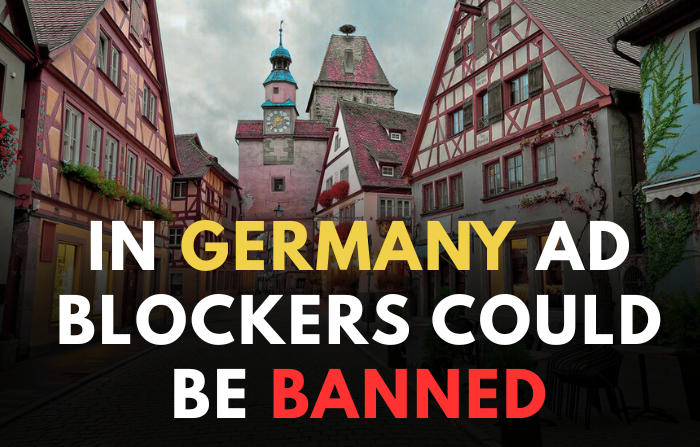Once thought of as a specialized browser function. Ad blocks are now at the heart of an ongoing conflict between internet users and publishers. The battle over Ad Blockers in Germany has now reached a critical point before the country’s top court. As publishers seek to maintain their economic model while users demand freedom from invasive advertisements. While new innovations like AI Support in WhatsApp show how rapidly digital platforms are evolving to meet user needs.
Federal Supreme Court Against Ad Blockers in Germany
Ad blockers may eventually be outlawed in Germany after a case was revived by the Federal Supreme Court (BGH). The dispute concerns media behemoth Axel Springer and Eyeo, the Cologne-based business that makes Adblock Plus, one of the most widely used Ad Blockers in Germany programs worldwide.
The Case of Ad Blockers in Germany
According to Axel Springer, the company behind well-known publications like Bild and Welt. Websites are composing of code that qualifies as a protected computer program in addition to text and images. It further argues that when an ad blocker hides an advertisement. It is actually illegally interfering with the underlying code that builds a website inside a browser without permission. Eyeo, meanwhile, maintains that it is only letting people choose what they want to see.
A Lower Court in Hamburg
Previously, a Hamburg lower court rejects this argument because it is not persuad. Parts of the decision is overturn by the BGH on July 31, 2025, claiming that judges had not adequately considered whether browser code such as the Document Object Model (DOM) and CSS Object Model (CSSOM) are legally protected works and whether concealing advertisements amounted to improper tinkering.
“It is impossible to deny that the bytecode or code derives from it is protect as a computer program, and that the ad blocker violation the exclusive right thereto by altering or changing reproduction,” according to BGH’s statement (automatic translation).
For further technical examination, the matter is currently being returning to the lower courts in Hamburg.
The Significance of It
The ramifications are not limitations to advertising. Any browser plugin that alters websites—from privacy filters to accessibility tools—may be deem unlawful if courts adopt Springer’s position. Ad blockers may be affects, but so may programs that increase accessibility, fortify security, or stop online tracking.
The creator of the Firefox browser, Mozilla, has cautioned that this could lead to Germany becoming the first democratic nation to ban ad blockers, a move it claims would compromise internet privacy, innovation, and user freedom.
According to a statement by Daniel Nazer
According to a statement from Mozilla’s Senior IP & Product Counsel Daniel Nazer, the decision might have a “chilling effect,” with browsers blocking functionalities and extension developers retreating to avoid legal action.
We fervently hope that Germany won’t follow China as the second country to outlaw ad blockers. This will drastically reduce consumers’ control over their online surroundings and may pave the way for similar limitations in other places. A precedent like this might fortify legal objections against any extensions. That safeguard privacy, increase accessibility, or strengthen security, Nazer continued.
Why this matters for ad blockers
Many of us use ad blockers, and they help us get rid of the boring ads we see on the social media platforms we use daily. However, if German courts determine that any modification to the browser constitutes Copyright ad blocker Germany infringement, many ad-blocking browser extensions or tools could also be banned.
For example, some of the best VPN software features ad blocking capabilities. There are also extension tools and browser features that improve accessibility and provide privacy and security. All of these tools can be banned, along with ad blockers.
Daniel Nazier wrote
Mozilla’s Senior IP & Product Counsel, Daniel Nazier, wrote, “I hope Germany doesn’t become the second country (after China) to ban ad blockers. This move would significantly limit users’ ability to control their online activities and potentially pave the way for similar restrictions elsewhere.”
This major decision will review by a Hamburg court, which could take a year or two. Until then, ad blockers can continue to operate freely in Germany. And data privacy in the country and across Europe will remain uncertain.
What Comes Next
Now that it has returned to Hamburg’s lower courts. The matter is far from complete, and more hearings might go on for years. Ad blockers are still allowing in Germany until then, though it’s unclear how long that will last.


Your article helped me a lot, is there any more related content? Thanks!